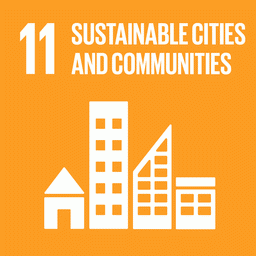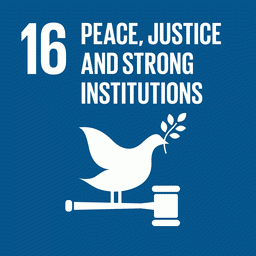Lays Ushirobira*
The Amazonian countries are not the only ones that can take action to put an end to land grabbing, one of the main causes of deforestation in the Amazon. The international community also has an important role to play in combating the illegal appropriation of public lands, as shown in the latest episode of Amazoniar’s series on land grabbing.
* Portuguese and English subtitles are available
Besides preventing the promotion of land grabbing by markets and investors, the international community can contribute to implementing and strengthening traceability in supply chains. Although international pressure for deforestation-free products has been increasing, much progress still needs to be made. Gold mining – which is often linked to the advance of land grabbing in the region – is a great example of an activity that requires more enforcement and cooperation between countries.
A study by Instituto Escolhas shows that half of the gold exported by Brazil between 2015 and 2020 showed traces of illegality, and 54% of the illegal gold identified came from the Amazon. Besides traces of extraction from indigenous lands and conservation units, the researchers found miners presented no information about the origin of the gold, as reported by the Mining Observatory in Brazil.
All that glitters is not gold
Identifying land grabbing and products illegally made in these lands is no easy task. Land grabbers have been defrauding the Rural Environmental Registry (CAR) in order to claim lands that do not belong to them. A study by Amazônia 2030, which had the contribution of researchers from the Amazon Environmental Research Institute (IPAM), shows that more than 100,000 rural properties registered in the National Rural Environmental Registry System (SICAR) overlap with undesignated public forests in the region.
In an interview with the Amazoniar team, a river dweller who preferred not to be identified and will therefore be referred to as A., said that he found it difficult to understand what land grabbing was when he first heard this word. “At the time, there were a lot of people buying and selling lands, and asking if there were people in the community to work cutting paths in the forest. I thought that the lands belonged to those who were deforesting. Only later did people start saying in the community that it was a way of illegally appropriating public land,” he said.
The impacts of the illegal practice, on the other hand, were felt almost immediately. “With land grabbing, many criminals get permission to exploit minerals. The river is where we see the biggest impact: the water is polluted, mercury is contaminating the blood of the community’s residents. The fishes, which are the basis of our diet, are getting sick. We can’t bathe in the river anymore to avoid allergic reactions,” he said.
For him, disunity among people in the community is also one of the impacts of land grabbing. “Some people go to work in the illegal gold mines because they have no other alternative. The culture of gold is very strong in the region and it’s difficult to change this scenario. Many people believe that it is only possible to survive by working in mines,” he explained, defending the importance of encouraging sustainable extractivism to generate income for families in the settlement where he lives.
In order to advance the traceability of supply chains, IPAM researchers highlight the importance of creating integrated information systems, such as online platforms that link scientific research results and careful analysis of the impacts of market and investment decisions on deforestation in the Amazon.
Unity and resistance against land grabbing
The fight against land grabbing is a story of constant resistance. Over the last few decades, A.’s community has had many wins, always followed by new challenges.
In 2005, he joined other residents to create an association. “We started an organized movement, with discussions and joint actions to expose criminals and try to protect ourselves from land grabbing,” he said. From this union and with legal advice, the group managed to annul the false property title of a logging company that had been operating in the territory since the 1970s and constantly threatened residents’ lives.
Another achievement of the association was the self-demarcation process of its land. “We held an assembly to discuss with the community members whether everyone was in agreement with the proposal and then we started working on it. It took two years to complete the process and it involved around 90 people, who participated directly or indirectly,” he said.
However, even with the conclusion of the self-demarcation process, the land has been invaded by land grabbers again in recent years in the face of environmental dismantling in the country and the pandemic. “The number of invaders in the territory has increased. The value of gold has increased, which has attracted many land grabbers. As the schools were closed for a long while, young people went to work in the mines. Land grabbing gained strength during this period and we suffered a lot.”
According to him, something very important for the community’s resistance was an alliance they built with indigenous people, with whom they shared territory but were not close to in the past. “In the past, our ancestors were attacked by indigenous people and there was a barrier between us. We were taught not to like them, and that’s the fault of the colonial system,” he highlighted. “It’s the first time we’ve come closer to indigenous people. We were facing a common enemy and together we are stronger. The more people thinking together, the better.”
This experience of a local alliance highlights the importance of coordinated collective efforts. It can also serve as an example for international cooperation, especially when it comes to holding consultations with communities that are directly affected for a more assertive formulation of international policies and agreements to help combat deforestation. In 2022, IPAM, the Instituto Socioambiental (ISA) and Fern held a consultation with representatives of organizations and collectives from Brazil, Argentina and Paraguay on the free trade agreement between Mercosur and the European Union – the first in the South American bloc to include a chapter on trade and sustainable development.
The initiative concluded that these communities did not have their voices heard in the process of negotiating and drafting the agreement, even though the treaty affects their lives, lands and security. “Communities should be fully involved in the negotiation of trade agreements. [If they were included in the negotiations] the resulting agreement would be more likely to be based on principles that respect human rights and environmental protection,” the organizations pointed out in a policy brief that gathers the main issues addressed during the consultation.
About Amazoniar
Amazoniar is an initiative of IPAM to promote a global dialogue about Amazon and its importance for Brazil’s relationships with the world. In the previous cycles, dialogues addressed the commercial relations between Brazil and Europe; the role of indigenous peoples in the region’s sustainable development and their contribution to science and culture; and youth engagement for the forest and its peoples in the 2022 Brazilian elections.
With the proposal of taking the Amazon beyond its borders, Amazoniar has already carried out special projects, such as a photography contest, whose selected photos were exhibited in the streets of Glasgow, in Scotland, during the COP26; a series of short films that composed the exhibition “Fruturos – Amazônia do Amanhã”, at the Museum of Tomorrow, in Rio de Janeiro; as well as two publications currently available only in Portuguese: Possible scenarios for the Amazon in the context of the 2022 Brazilian elections and Solutions to deforestation in the Amazon. The initiative also produced a series of interviews with representatives of traditional communities during the negotiations of the Free Trade Agreement between Mercosur and European Union.
To be part of the global dialogue about the Amazon, sign up for our newsletter.
*Journalist and communications consultant at IPAM

